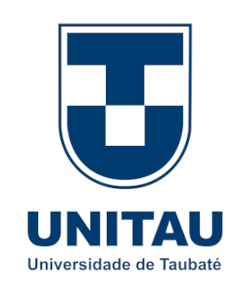MAINTENANCE IMPLEMENTATION THROUGH MARINE ERP SYSTEMS
Palabras clave:
Marine ERP systems, Maintenance implementation, Maritime industry, Operational efficiency, Environmental sustainabilityResumen
This research paper aims to examine how marine Enterprise Resource Planning (ERP) systems implement maintenance plans in the maritime industry. The objectives of this paper were to examine the evolution of maintenance practices in the maritime industry and the emergence of marine ERP systems as a transformative solution. It also investigates the role of marine ERP systems in optimizing maintenance planning and execution. The article further assessed the financial implications of implementing marine ERP systems for maintenance and explores the alignment between marine ERP systems and environmentally sustainable maintenance practices. The method used in this study was the quantitative technique and the data was collected using the questionnaire survey. The data collected has been analysed using SPSS software to evaluate how maritime ERP systems relate to different facets of maintenance effectiveness. The research's primary target areas are operational effectiveness, cost-cutting, safety improvement, and environmental sustainability. The results revealed that incorporating marine ERP systems in maintenance practices positively impacts all aspects analysed. The study advances knowledge of how technology-driven efforts, such as ERP systems, can transform the maintenance environment in the maritime industry for enhanced operational performance and overall excellence.
Descargas
Métricas
Citas
Abutabenjeh, S. & Jaradat, R. (2018). Clarification of research design, research methods, and research methodology: A guide for public administration researchers and practitioners. Teaching Public Administration, 36(3), pp.237-258.
Aditchere, J. (2022). BUFFERING AND BRIDGING STRATEGIES AND SUPPLY CHAIN RESILIENCE: A CONTINGENT ANALYSIS (Doctoral dissertation, Department of Supply Chain and Information Systems, Kwame Nkrumah University of Science and Technology).
Alarcón, M., Martínez-García, F. M., & de León Hijes, F. C. G. (2021). Energy and maintenance management systems in the context of Industry 4.0. Implementation in a real case. Renewable and Sustainable Energy Reviews, 142, 110841.
Bacsi, Z., Gebbisa, M.B., Dávid, L.D. & Hollósy, Z. (2023). Pastoralism and Tourism in Eastern Africa—Quantitative Analysis from 2004 to 2018. Sustainability, 15(12), p.9723.
Don, R. G. M. (2021). Framework for Embedding Optimisation and Simulation Tools in Supply Chain Management. Sheffield Hallam University (United Kingdom).
Fischer, H.E., Boone, W.J. & Neumann, K. (2023). Quantitative research designs and approaches. In Handbook of research on science education (pp. 28-59). Routledge.
Gavidia, J.V. (2017). A model for enterprise resource planning in emergency humanitarian logistics. Journal of Humanitarian Logistics and Supply Chain Management, 7(3), pp.246-265.
Gholami, R., Watson, R. T., Hasan, H., Molla, A., & Bjorn-Andersen, N. (2016). Information systems solutions for environmental sustainability: How can we do more? Journal of the Association for Information Systems, 17(8), 2. https://aisel.aisnet.org/jais/vol17/iss8/2/
Jamieson, M.K., Govaart, G.H. & Pownall, M. (2023). Reflexivity in quantitative research: A rationale and beginner's guide. Social and Personality Psychology Compass, p.e12735.
Janowicz, K., Gao, S., McKenzie, G., Hu, Y., & Bhaduri, B. (2020). GeoAI: spatially explicit artificial intelligence techniques for geographic knowledge discovery and beyond. International Journal of Geographical Information Science.
Lun, Y. V., Lai, K. H., Cheng, T. E., & Yang, D. (2023). New Technology Development in the Shipping Industry. In Shipping and Logistics Management (pp. 257-279). Cham: Springer International Publishing. https://link.springer.com/chapter/10.1007/978-3-031-26090-2_17
Maher, C., Hadfield, M., Hutchings, M. & De Eyto, A. (2018). Ensuring rigor in qualitative data analysis: A design research approach to coding combining NVivo with traditional material methods. International journal of qualitative methods, 17(1), p.1609406918786362.
Min, H. (2022). Developing a smart port architecture and essential elements in the era of Industry 4.0. Maritime Economics & Logistics, 24(2), 189-207. https://link.springer.com/article/10.1057/s41278-022-00211-3
Nikolopoulos, K., Metaxiotis, K., Lekatis, N., & Assimakopoulos, V. (2003). Integrating industrial maintenance strategy into ERP. Industrial Management & Data Systems, 103(3), 184-191. https://www.emerald.com/insight/content/doi/10.1108/02635570310465661/full/html
Oluyisola, O. E. (2021). Towards smart production planning and control: Frameworks and case studies investigating the enhancement of production planning and control using internet-of-things, data analytics, and machine learning.
Papathanasiou, A., Cole, R., & Murray, P. (2020). The (non-) application of blockchain technology in the Greek shipping industry. European Management Journal, 38(6).
Papoutsidakis, M., Sfyroera, E., & Alafodimos, N. (2019). Information systems (ERP) for shipping companies. Information Systems (ERP), 6(12). https://www.jmest.org/wp-content/uploads/JMESTN42353221.pdf
Qi, J. (2021). The review of implication and development of digital technologies in maritime sector.
Salter, M.B., Mutlu, C.E. & Frowd, P.M. eds. (2023). Research methods in critical security studies: An introduction. Taylor & Francis.
Shan, Z. (2020, June). Research on Ship Management ERP Integrated Platform System of Offshore Engineering Exploration and Scientific Research Enterprise. In Journal of Physics: Conference Series (Vol. 1549, No. 4, p. 042082). IOP Publishing. https://iopscience.iop.org/article/10.1088/1742-6596/1549/4/042082/pdf
Tiwasing, P., Galloway, L., Refai, D., Kevill, A., Kromidha, E. & Pattinson, S. (2023). The International Journal of Entrepreneurship and Innovation editors’ series: Advancing quantitative research in entrepreneurship. The International Journal of Entrepreneurship and Innovation, 24(1), pp.3-6.
Tulloch, V. J., Turschwell, M. P., Giffin, A. L., Halpern, B. S., Connolly, R., Griffiths, L., ... & Brown, C. J. (2020). Linking threat maps with management to guide conservation investment. Biological Conservation, 245, 108527
Descargas
Publicado
Cómo citar
Número
Sección
Licencia
Derechos de autor 2023 Vasileios Adamantidis

Esta obra está bajo una licencia internacional Creative Commons Atribución-NoComercial-SinDerivadas 4.0.
A submissão de originais para este periódico implica na transferência, pelos autores, dos direitos de publicação impressa e digital. Os direitos autorais para os artigos publicados são do autor, com direitos do periódico sobre a primeira publicação. Os autores somente poderão utilizar os mesmos resultados em outras publicações indicando claramente este periódico como o meio da publicação original.




